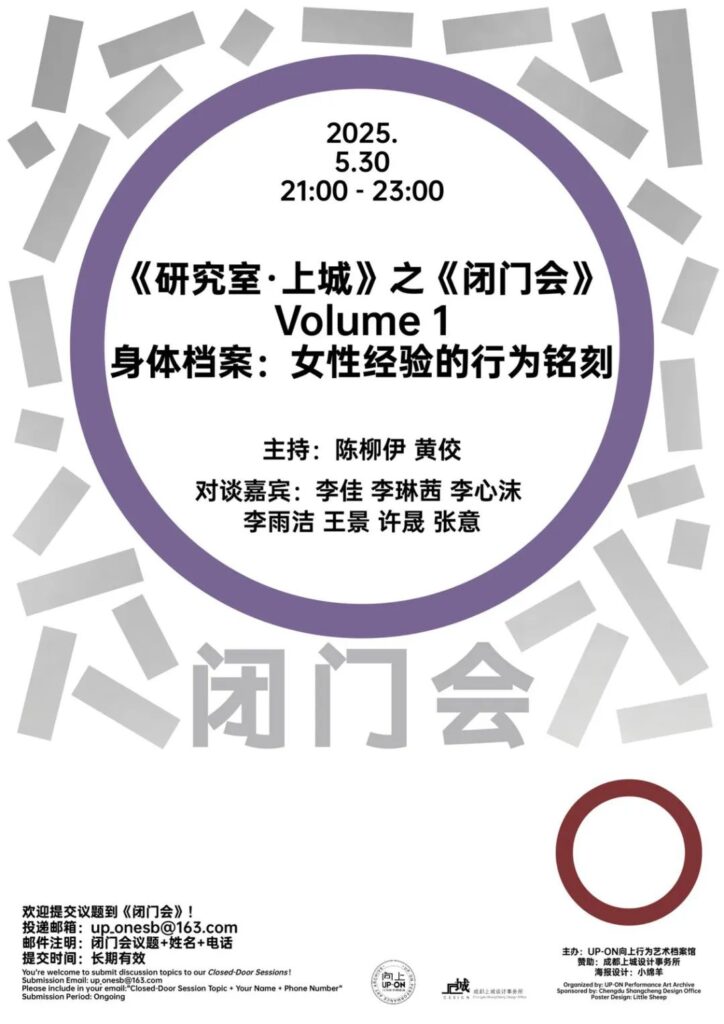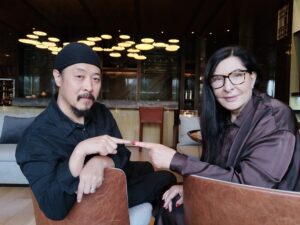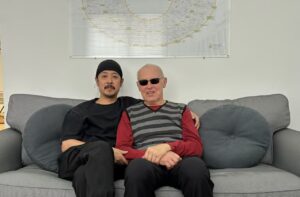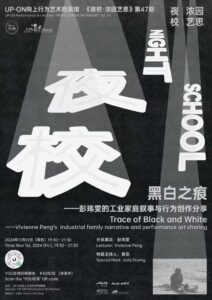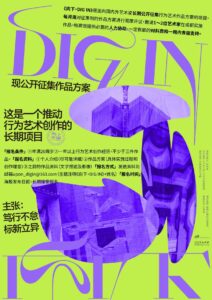UP-ON Archives “Research Room” section is centered on the activation of archival documentation through theoretical research, seminars, self-publication, and documentary exhibitions, and the development of in-depth knowledge production. Important projects completed so far include “Acting in Time and Space: Performance Art Documentary Research Series”, “Mobile and Unrestricted: Chinese Performance Art Archives Exhibition” (New Zealand), etc. In May 2025, the Research Room will launch its latest project, “Closed Door Session”.
About “Closed-door Meeting” Q&A
Q: Purpose? A: To gather scholars, stimulate each other, and carry out knowledge production.
Q: Why is it closed-door? A: To avoid outside interference, protect personal views, communicate frankly and debate openly, and ensure fruitful discussions.
Q: What are we going to talk about? A: Focus on key issues in the field of culture and art.
Q: How are the topics set? A: Open call and archive proposals.
Q: Who will talk about it? A: The person who formulates the topic and invites specific people from outside the organization to participate (5-7 people).
Q: How to communicate externally?
A: The content of the conference is edited in excerpts and published through tweets and journals, as well as symposiums to share the results of the conference. The internal collection of the future archive is self-published.
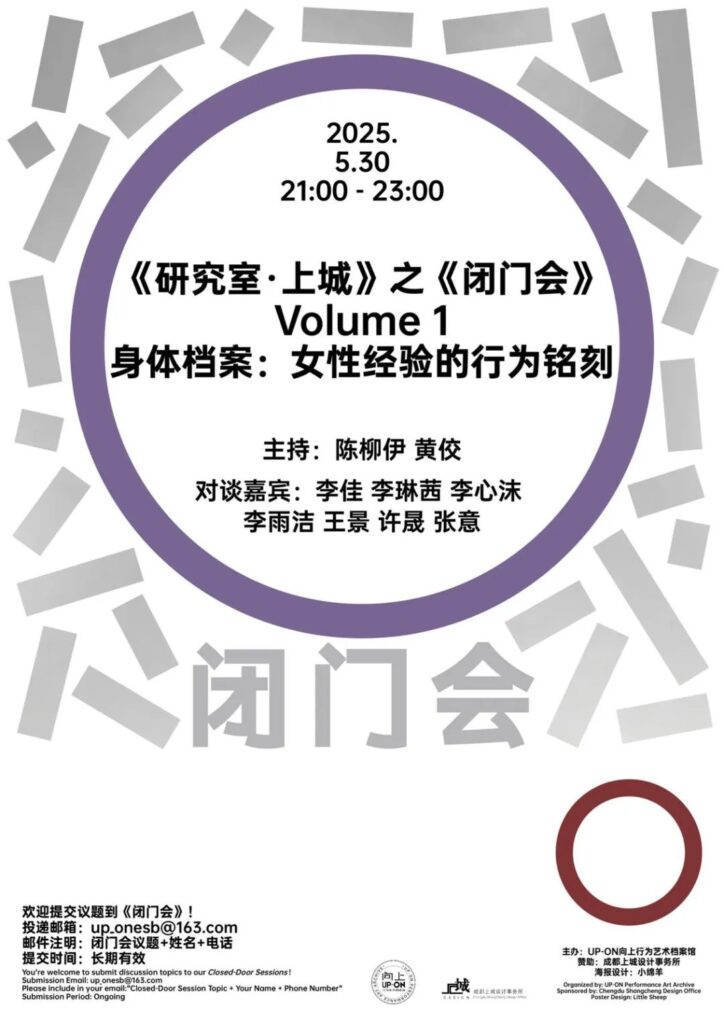
Volume 1 Body Archives: Behavioral Inscriptions of Female Experience
Online Seminar Event Agenda Format: Online Seminar (Zoom/Teams)
Facilitators: Chen Liuyi, Huang Jiao
Time: May 30, 2025 21:00
Duration: about 2 hours
Guests of this seminar:
Jia Li PhD student at the University of Tokyo, Japan.
LINXI LI B.A. and M.F.A. from the École Nationale des Beaux-Arts de Limoges, France, and participated in the TKR Master’s exchange program at the University of Gothenburg, Sweden.
Xinmo Li graduated from Tianjin Academy of Fine Arts, dedicated to cross-media art creation and research, from writing to performance art to virtual reality. Her works focus on ecology, identity, and sociological issues, and she lives in China and Sweden.
Li Yujie is an Assistant Professor in the Department of Fine Arts at the Chinese University of Hong Kong. She was the inaugural Judith Neilson Postdoctoral Fellow in Contemporary Art at the School of Art and Design, University of New South Wales, Sydney, and has held research fellowships at the Center for Asian Studies at the Tate, London, and in the Department of Media and Performance Art at the Museum of Modern Art, New York.
Wang Jing graduated from the Department of Art History at the Guangzhou Academy of Fine Arts and the Center for Curatorial Studies at Bard College (CCS Bard) in New York. He now lives and works in the Pearl River Delta, Guangdong Province. In recent years, as an independent curator, her focus is on how to build exhibition spaces/structures that are close to the scene of social reality and life/experience; she also initiates a series of sharing sites of dilemmas or paradoxical issues arising from the creative practices of individual artists and researchers in the Guangzhou non-profit organization Top, in order to connect the inter-subjective exchanges on a more public level. In this way, it connects a more public level of inter-subjective communication.
Xu Sheng is an independent art curator and art critic. Graduated from the French Department of the Chinese Academy of Foreign Affairs and the first Chinese recipient of the Erasmus Mundus Scholarship, Xu Sheng studied Contemporary Art and Criticism of Western Thought at the University of St. Andrews (UK), the University of Perpignan (France), and the University of Bergamo (Italy).
Zhang Yi is a professor at the School of Literature and Journalism, Sichuan University, and a visiting scholar at the University of Cambridge, UK.
As Griselda Pollock has said, the significance of the “canon of difference” is not only to discover women artists who have been obscured by history, but also to face the structural bias that exists in the art world. In the long and winding road of feminism and the current art ecology, there are still many issues that we need to examine.
● Is there sufficient awareness and sensitivity to the situation of women in the current art criticism and art education system?
● Although the concept of “gaze” is widely known in contemporary society and culture, does the phenomenon of women as objects of viewing still exist widely in the contemporary art ecology?
● Is there a danger that the definition and praise of the so-called “femininity” will fall into the trap of essentialism?
● Is it too much to ask female artists to identify as women, or to emphasize the connection between their works and the female experience?
● Do feminist theorists’ critical inheritance and invocation of theories such as psychoanalysis inadvertently reinforce gender binaries and patriarchal discourses?
● From the standpoints of researchers and critics, this workshop will raise questions and reflections on the situation and identity of female artists in the current art ecology, the position of women in the history of modern and contemporary art, the performance and reproduction of the female body, and the paradigm of feminist art criticism and its legacy, as well as exploring possible methods and perspectives for viewing these issues and phenomena.


